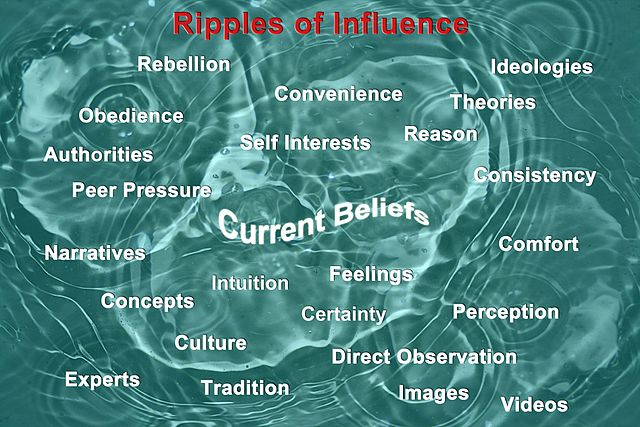In the field of psychology, cognitive dissonance is described as the mental discomfort people feel when their beliefs and actions are inconsistent and contradictory, ultimately encouraging some change to align better and reduce this dissonance. Relevant items of information include peoples' actions, feelings, ideas, beliefs, values, and things in the environment. Cognitive dissonance is typically experienced as psychological stress when persons participate in an action that goes against one or more of those things. According to this theory, when an action or idea is psychologically inconsistent with the other, people do all in their power to change either so that they become consistent. The discomfort is triggered by the person's belief clashing with new information perceived, wherein the individual tries to find a way to resolve the contradiction to reduce their discomfort.

In the fable of "The Fox and the Grapes", by Aesop, on failing to reach the desired bunch of grapes, the fox then decides he does not truly want the fruit because it is sour. The fox's act of rationalization (justification) reduced his anxiety over the cognitive dissonance from the desire he cannot realise.
Dissonant self-perception: A lawyer can experience cognitive dissonance if he must defend as innocent a client he thinks is guilty. From the perspective of The Theory of Cognitive Dissonance: A Current Perspective (1969), the lawyer might experience cognitive dissonance if his false statement about his guilty client contradicts his identity as a lawyer and an honest man.
A belief is a subjective attitude that a proposition is true or a state of affairs is the case. A subjective attitude is a mental state of having some stance, take, or opinion about something. In epistemology, philosophers use the term "belief" to refer to attitudes about the world which can be either true or false. To believe something is to take it to be true; for instance, to believe that snow is white is comparable to accepting the truth of the proposition "snow is white". However, holding a belief does not require active introspection. For example, few individuals carefully consider whether or not the sun will rise tomorrow, simply assuming that it will. Moreover, beliefs need not be occurrent, but can instead be dispositional.
Philosopher Jonathan Glover warns that belief systems are like whole boats in the water; it is extremely difficult to alter them all at once (for example, it may be too stressful, or people may maintain their biases without realizing it).
We are influenced by many factors that ripple through our minds as our beliefs form, evolve, and may eventually change.
Image: Religion collage updated





